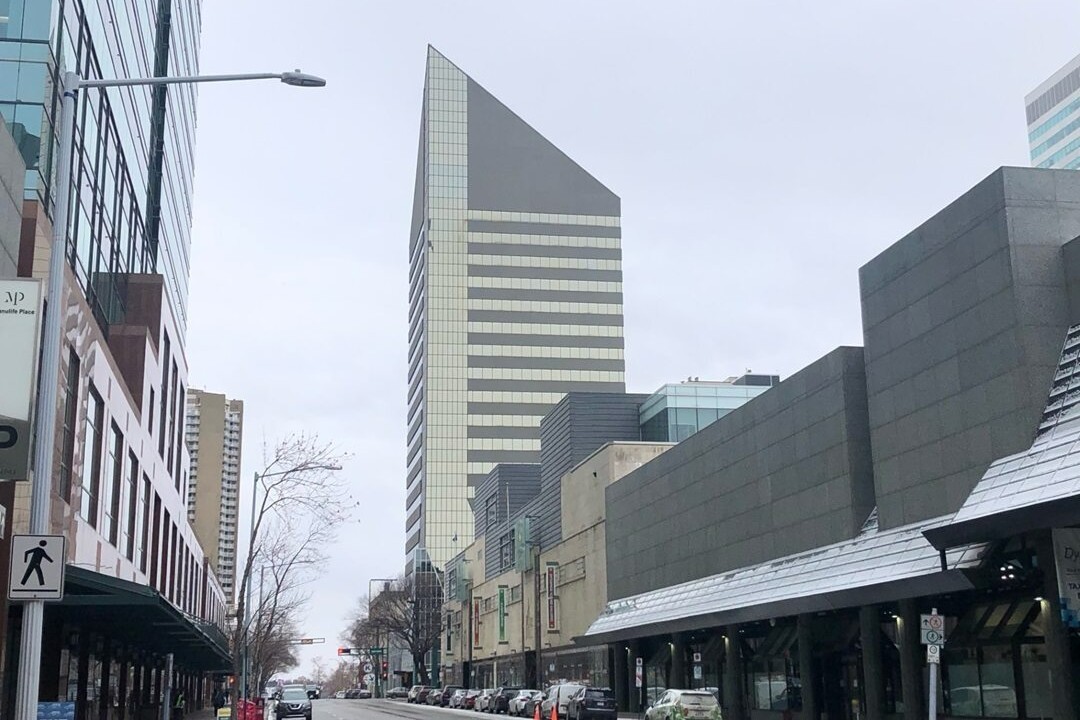This week, council committees are set to discuss climate action, projects to help homeless and vulnerable Edmontonians, and whether to incentivize office tower conversions, among other topics.
Community and public services committee will meet on Oct. 30, urban planning committee will meet on Oct. 31, executive committee will meet on Nov. 1, and utility committee will meet on Nov. 3.
Here are some of the key items on the agenda:
- An update on the city's climate strategies notes that the nearly $376 million of capital and operating spending that council approved for the 2023-2026 budget cycle will take decades to impact carbon emissions. Executive committee members will discuss options for a dedicated climate fund, which could involve a climate tax levy of between 0.45% and 0.8% in each of the next 10 years. The results of the 2023 Climate Change and Energy Perceptions Report indicate that 73% of Edmontonians believe action on climate change is needed, but only 34% of those surveyed support a dedicated climate action tax levy.
- Community and public services committee will discuss several items related to vulnerable and homeless Edmontonians on Oct. 30. Since the city's 2017 Plan to Prevent and End Homelessness, the number of people experiencing homelessness has more than doubled to an all-time high of 3,200. In the same period, the city has placed 8,500 people in stable housing. The city is working with stakeholders on an updated plan. Four Indigenous-led projects are being explored: a permanent shelter, a trailer shelter on Enoch Cree Nation, a stabilization space that would act as bridge housing for people leaving homelessness, and a transitional space run by several Indigenous-led organizations.
- An incentive program to encourage the conversion of empty downtown office space to other uses in the face of high office vacancy rates will be discussed at an urban planning committee meeting on Oct. 31. In its latest report on the Edmonton office market, Avison Young said an incentive program like one recently implemented in Calgary would result in a range of positive outcomes. Grow Together Edmonton, however, questioned the financial viability of such subsidies. The city said most industry representatives indicated that $75 per square foot would be a meaningful incentive that would make new development viable, and responses ranged between $40 and $100 per square foot. Listen to Episode 239 of Speaking Municipally for more on the proposed incentive program.

Peak Tower, an office-to-residential conversion in the former Enbridge Tower, is set to open in December. (Stephanie Swensrude)
Here are some of the other new agenda items:
- Administration studied options for incentives for building housing downtown and found a per-square-foot grant could be effective but expensive, costing the city between $11.6 million and $23.1 million each year to incentivize 275 units annually. Staff does not recommend using the downtown community revitalization levy to fund a potential incentive program, as its capacity is restrained. The city wants to see 359 new units built each year for the next 20 years.
- Utility committee will consider removing the charitable exemption in the single-use items bylaw. The city says charitable organizations sometimes rely on single-use items and wrote the bylaw with that in mind, but incoming federal regulations will prohibit charitable organizations from using them as of Dec. 20.
- A pilot project involving a community property safety team has resulted in a 31% decrease in structural fires downtown and in the Alberta Avenue area, the city said in a report going to community and public services committee. Funding for the pilot will run out in December, and a service package to continue the service will be introduced at the fall supplemental operating budget adjustment.
- The city has an annual budget of $500,000 to support and attract events that could bolster Edmonton's economy and reputation, which administration says is not sufficient to fund an updated Event Growth and Attraction Strategy. Upon council direction, administration will introduce a service package for more event attraction funding at the supplemental operating budget adjustment.
- The intersection at 167 Avenue and 66 Street NW, Parsons Road, and 215 Street NW are three arterial roads that administration is suggesting could use an upgrade. The city studies roads in developing areas of the city to determine if they're serving the area as intended.
- Five affordable housing developments have been selected for the $16.7 million Affordable Housing Investment Program, pending council approval.
- Community and public services committee will discuss actions the City of Edmonton can take to respond to the drug poisoning crisis.
Meetings stream live on YouTube on the Chamber channel and River Valley Room channel.
